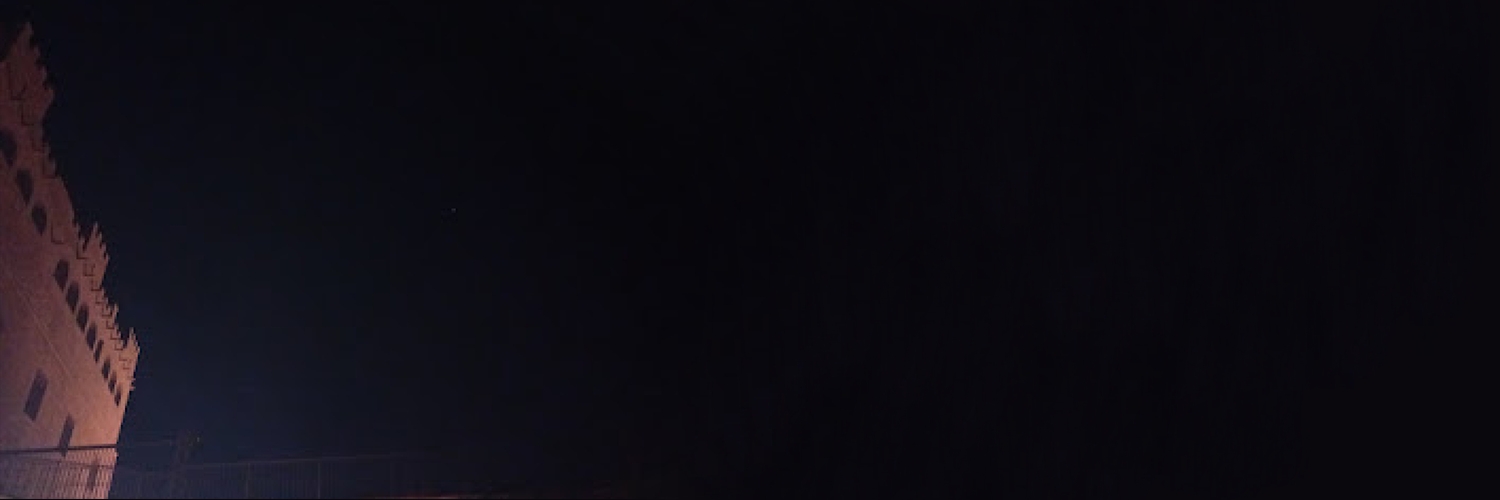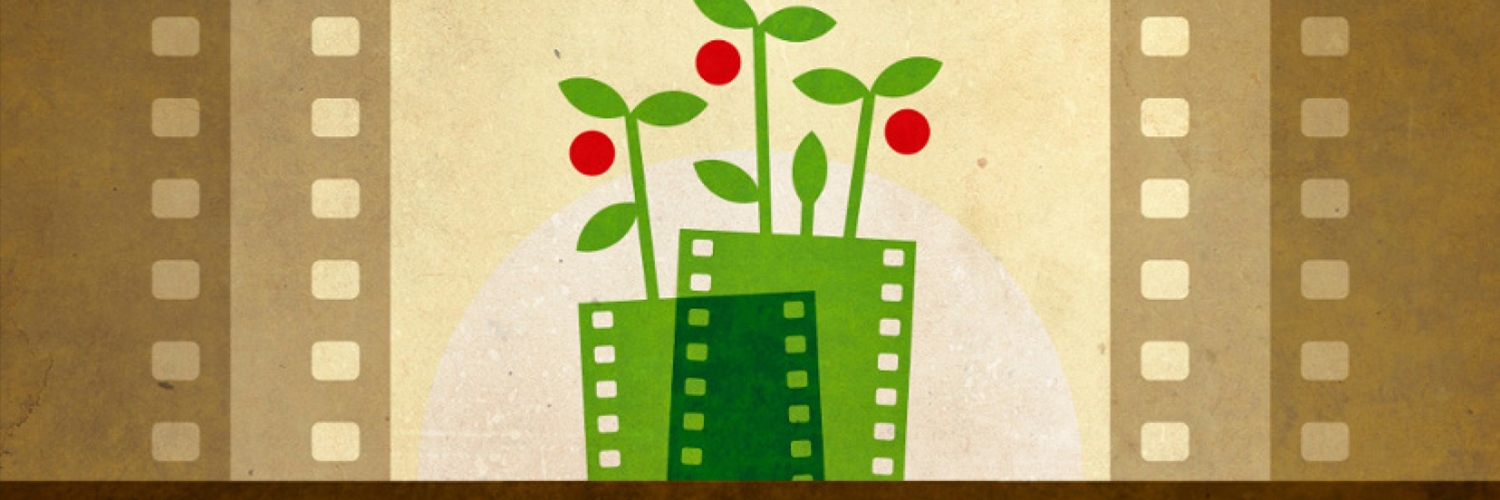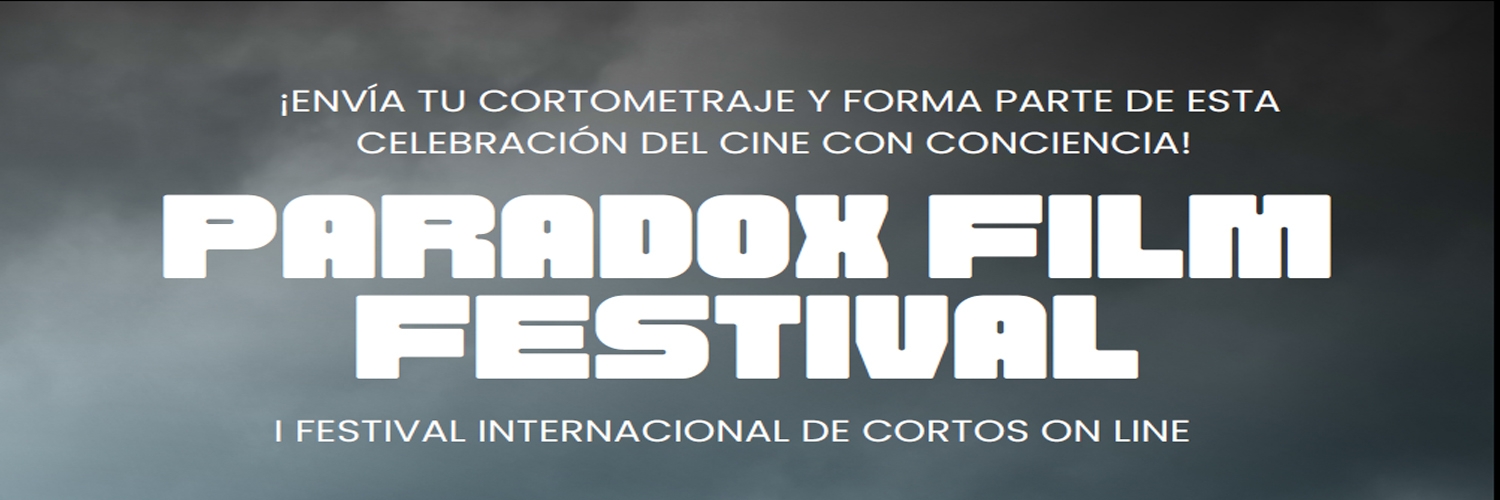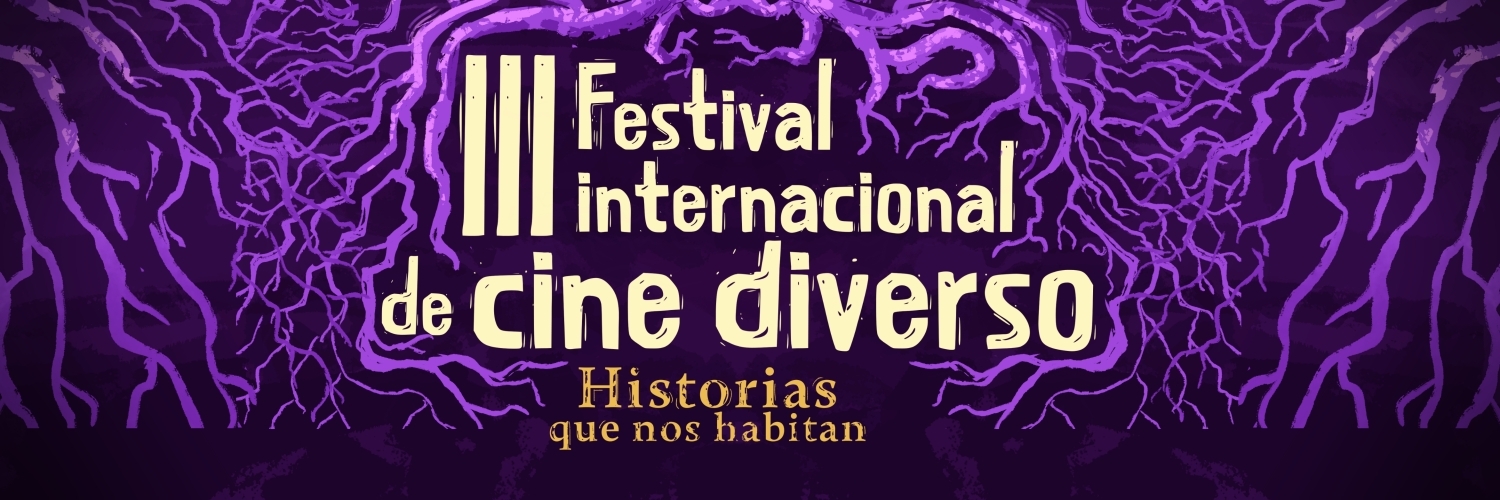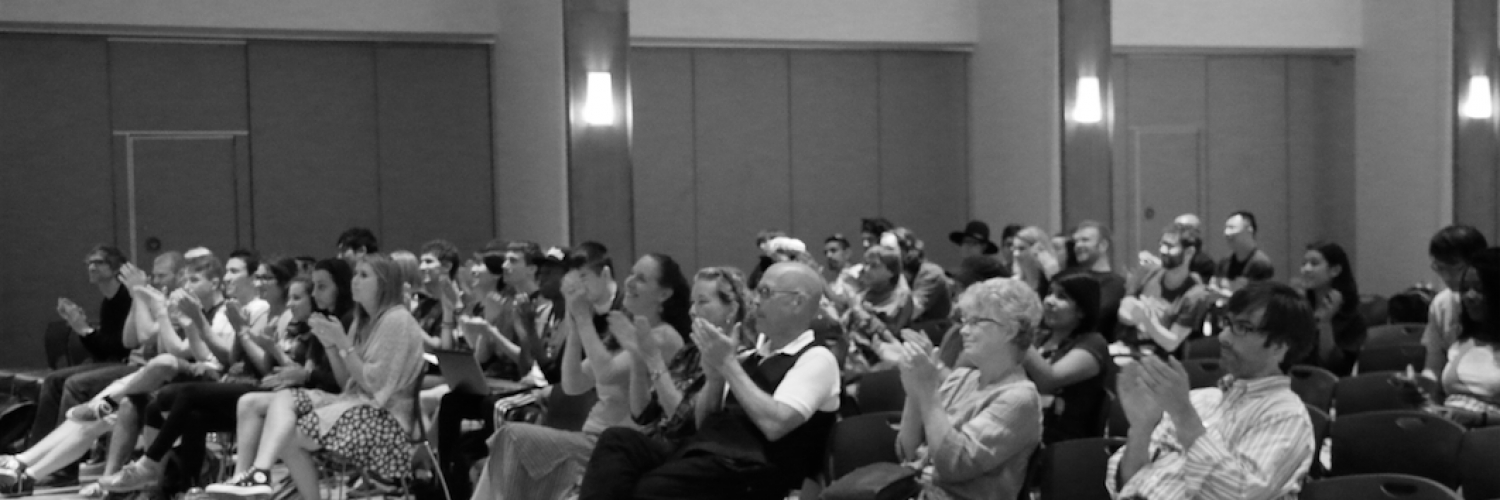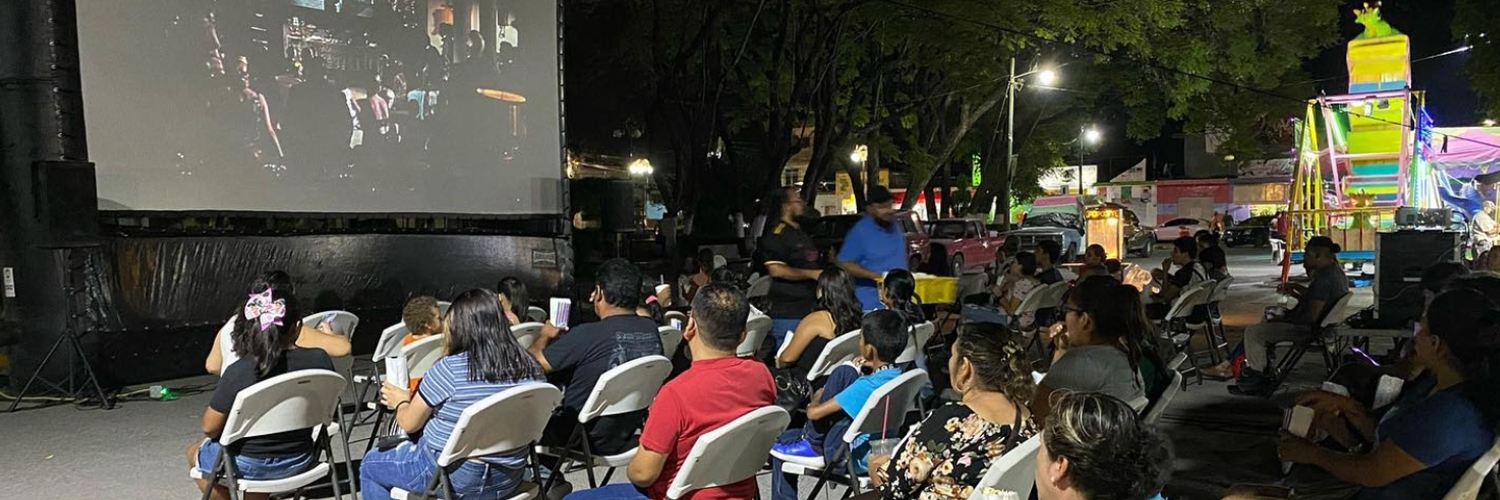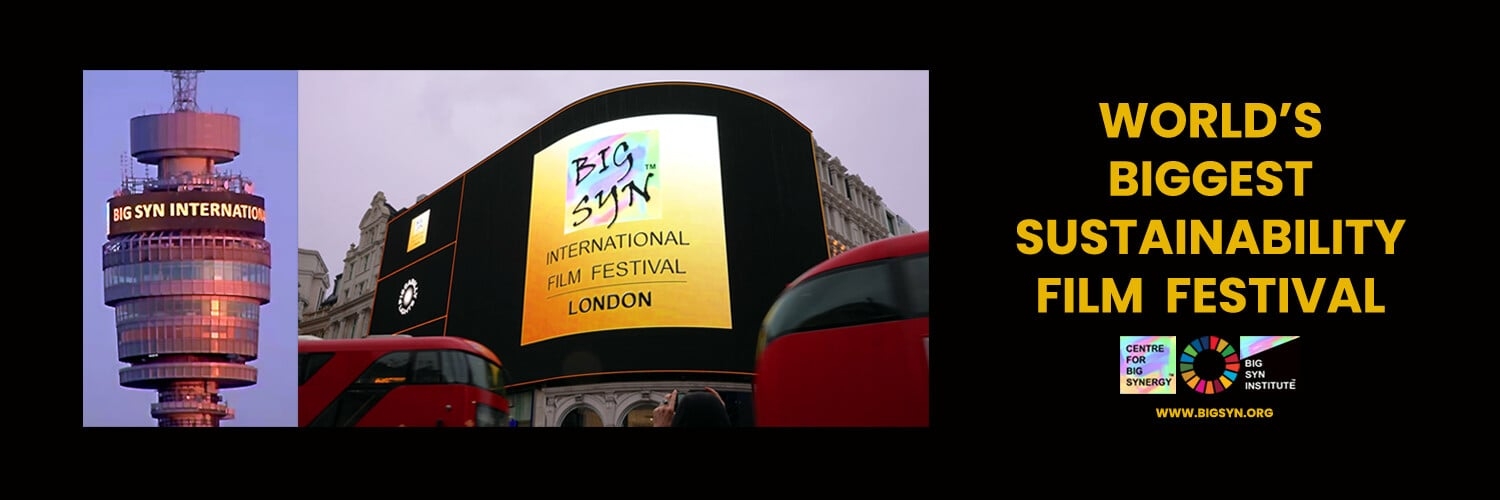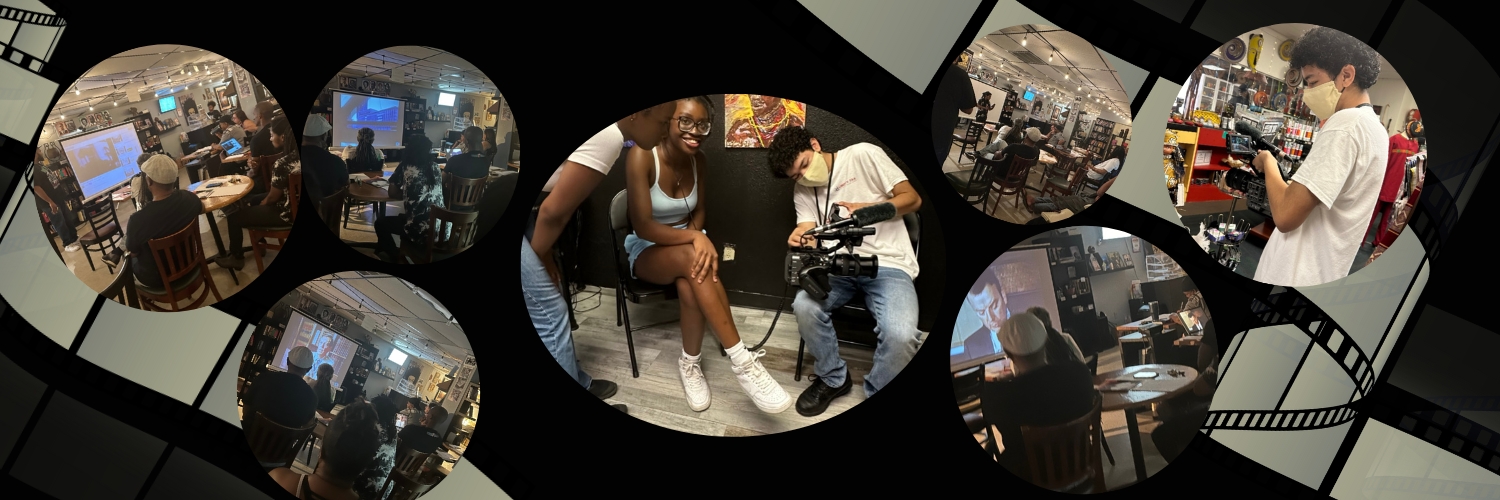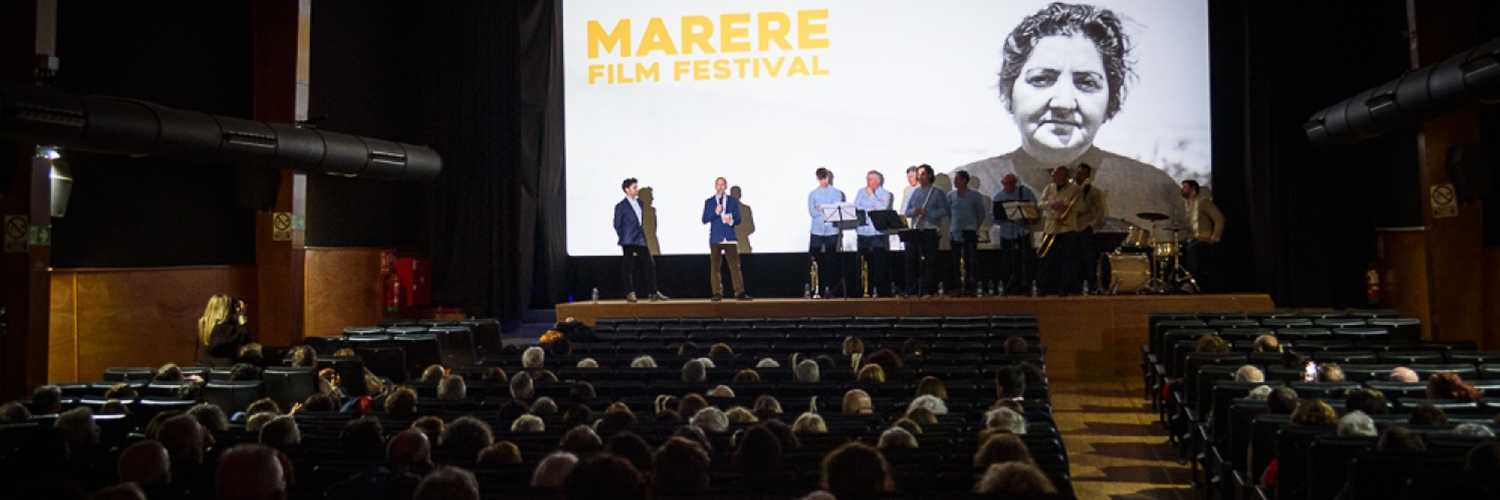
제7회 그리스 국제 영화제가 최고의 영화를 상영합니다. GIFF는 아테네에서 라이브 관객을 대상으로 열리는 상영 페스티벌입니다.
우리는 영화 제작자, 프로듀서, 배급사로 구성된 팀으로 25년 이상 영화와 연극 분야에 전문적으로 참여해 왔습니다.
영화제의 최우수 단편, 중편 및 장편 영화가 그리스 트로피를 수상하며 폐막식에서 감독에게 수여됩니다.
기프 페스티벌의 궁극적인 목표는 모든 사람이 즐길 수 있도록 하는 것입니다.
그리스 국제 영화제는 참가자들의 최고의 프로젝트에 트로피, 영예 표창 및 월계관을 제공합니다.
영화 - 시리즈
뮤직 비디오 - 댄스 비디오
각본 - 연극
로렐
우승자에게 월계관을 수여하는 전통은 기원전 6세기 그리스 델포이의 피티아스에서 시작되었습니다.
이 행사들은 아폴로 신을 기리기 위해 조직되었는데, 아폴로 신은 아폴로 신을 기리기 위해 보통 월계관을 들고 나타났는데, 다프네는 사랑스러운 기분을 피해 자신을 식물로 변신시킨 님프 다프네를 기리기 위해 마련되었습니다. 이 식물의 이름은 “다프네”였습니다.
그리스 국제 영화제는 다섯 번째로 관객에게 문을 열어 국내외 영화, 비디오 및 시나리오를 선보입니다.
페스티벌의 마지막 행사는 아테네 중심부에서 열렸으며 유서 깊은 시네마 “아이리스” (시네마 섹터 - ΦΑ) 에서 상영되었으며, 전 세계의 단편 및 장편 영화를 상영했습니다. 이 페스티벌은 그리스 및 외국 감독의 소설 영화, 다큐멘터리, 애니메이션을 상영했으며, 입장료는 무료입니다. 상당수의 영화가 그리스에서 세계, 유럽, 그리스 초연을 가졌습니다.
https://youtu.be/jb4s6fVTzdU
그리스 국제 영화제는 국제 및 국내 영화 산업의 예술가, 감독, 시나리오 작가 및 제작자 간의 커뮤니케이션 채널 역할을 하고자 합니다.
GIFF는 그리스 및 국제 단편, 중편 영화, 장편 영화, 뮤직 비디오, 댄스 비디오, 시나리오, 연극 연극 등의 경쟁 부서가 GIFF 활동의 특별한 위치를 차지하고 있습니다. 이 부문은 새로운 예술 작품이 자신의 길을 찾고 관객과 친해질 수 있도록 지원합니다.
독립 음악 산업에서 다년간의 경험을 쌓은 유럽 인디 뮤직 네트워크는 전 세계 최고의 재능을 발굴하고 전 세계적으로 방송되는 케이블 TV 채널인 Euro Indie Music Chart TV의 특별 갈라 나이트에서 그들의 작품을 선보이는 유로 인디 필름 페스트를 시작합니다! 우승자에게는 특별상이 수여됩니다!
수상자는 Euro Indie Music Chart TV를 통한 방송과 네트워크 관련 플랫폼을 통한 언론 보도를 통해 영화에 대한 국제적 인지도를 포함한 특별상을 받을 수 있습니다. 공식 트로피와 독립 영화 및 음악 산업 전문가들과의 네트워킹 기회.
FIC AUTOR (작가 국제 영화제) 는 기존 스토리텔링의 한계를 뛰어넘는 독특하고 예술적인 영화에 관심을 갖고 있습니다. 우리는 감독의 개인적인 창의적 비전을 반영하고 공동의 과정을 통해 빛을 발할 수 있을 만큼 뚜렷한 스타일을 반영하는 장편 영화와 단편 영화를 찾습니다.
우리는 당신이 영화에서 무엇을 보여줄지, 얼마나 창의적인지, 어떻게 이야기를 전달하는지에만 신경을 씁니다. 그게 전부입니다. 영화에 스타나 알려지지 않은 이름이 있든, Arri나 DSLR로 촬영했든, 수천 개의 페스티벌에 승인되었든, 없든 상관 없습니다. 우리는 다른 페스티벌처럼 당신의 성별, 성적 취향, 피부색 또는 민족성을 기준으로 결정을 내리지 않습니다. 우리는 영화 산업에 넘쳐나는 정치와 관료주의에 반대합니다. 허용된 영화의 100% 는 제출물에서 나온 것이며, 우리는 영화를 초대하지 않습니다. 우리는 치열한 경쟁과 극장에서 가장 창의적인 글로벌 영화를 선보이는 객관적인 페스티벌로 인정받고 싶습니다!
우리는 RAINDANCE Film School MX와 파트너 관계를 맺고 있습니다. 따라서 엄선된 영화 제작자라면 그곳에서 영화를 상영하고 세계에서 가장 중요한 영화 학교 중 한 곳에서 마스터 클래스를 가르칠 기회를 얻게 될 것입니다. 누가 알겠어요? 엘리엇이 직접 목격할 수도 있습니다!
FIC AUTOR는 11월에 과달라하라, 할리스코, 멕시코, 테킬라 할리스코에서 개최됩니다. 우리는 무명 영화 제작자의 예상치 못한 창의적인 저예산 영화부터 경험이 풍부하고 잘 알려진 감독들이 만든 영화에 이르기까지 전 세계 최고의 영화를 선보일 것입니다. 마노 어머나, 이 대회는 정말 힘듭니다! FIC AUTOR는 도시에서 가장 중요한 문화 행사 중 하나가 되기 위해 노력할 것입니다. 우리는 신인 감독들이 국제적으로 주목받는 사람이 되고자 합니다!
제7회에서는 첫 번째 게스트인 아카데미상 후보에 오른 여배우 얄리차 아파리시오 (“로마” 감독) 에게 첫 번째 명예 반지를 수여했습니다. 알폰소 쿠아론) 앞으로도 다양한 분야의 흥미로운 인재들을 초대할 예정입니다.
-우승한 13명의 작가에게는 우승자 로렐과 FIC AUTOR 트로피 또는 반지가 수여됩니다.
-수상자는 시상식 한 달 전에 발표되므로 후보에 오른 모든 영화 제작자는 영화제 출장 여부를 미리 결정할 수 있습니다.
-Cineforo는 440석을 갖춘 이 도시에서 가장 큰 영화관 중 하나이며 가장 유명한 영화관입니다.
카테고리:
장편 영화 카테고리:
-가상의 장편 영화.
-다큐멘터리 장편 영화.
-실험적 장편 영화.
-초보 영화 제작자.
-5만 달러 미만의 저예산 장편 영화.
-멕시코 장편 영화. (멕시코 감독만 해당)
미디엄 길이 카테고리:
-미디엄 길이 필름. (모든 종류)
단편 영화 카테고리:
-가상의 단편 영화.
-다큐멘터리 단편 영화.
-실험적 단편 영화.
-애니메이션 단편 영화.
-멕시코 단편 영화. (멕시코 감독만 해당)
- 시네미누토 1분 단편 영화.
후머스 필름 페스트는 환경을 주제로 한 국제 단편 영화제입니다. 프로 및 아마추어 영화 제작자 모두를 소개하여 농촌과 도시 지역 간의 단절, 도시의 자연 상실, 농촌 인구 감소, 기후 변화, 환경을 더 존중하는 사회로의 생태사회적 전환 등 우리가 직면한 환경 문제에 대한 시각을 넓히는 것을 목표로 합니다.
후무스 필름 페스트는 뚜렷한 쾌락주의와 낙관주의 정신으로 탄생했으며, 올해로 11회째를 맞이해 계속되고 있습니다. 따라서 우리는 영화 제작자들이 엄연한 현실에서 이러한 문제를 다루는 이야기를 선보일 뿐만 아니라 유머, 시, 초현실주의, 실험적 예술을 향해 카메라를 활짝 열어보길 권장합니다. 이를 통해 우리는 좀 더 희망적인 미래 환경 시나리오에 접근할 수 있고, 적어도 우리를 마비시키는 종말론적 관점에서 현재 상황을 이해하는 데 도움이 될 수 있습니다.
Insular & other seas Film festival(IOSAFF)
For outdoor performing arts and film screenings: How to bring your art to beaches, plazas and streets>
IOSAFF, not only competitions and film screenings but also an artists' tour during which we explore creative activities in various artistic specialties.
»IOSAFF is a coherent whole of a multidimensional cultural and cinematographic project will take place Palms Casino Resort Las Vegas
four days for a traveling festival (artist tour), we launch creative projects that bring people together, and we create high impact campaigns with influencers to motivate audiences to share their creativity.
If You're a filmmaker, screenwriter, designer, actor or actress, musician or band, painter or sculptor, or any other creative expression, we welcome you to the tours of creative artists...
Let's explore the oceans, seas & islands
-Adventures,
- Environment,
- Designs animations,
-Documentary,
- Author's cinema,
Islands in music & video
Ai
Oceans and seas cover 71% of the earth's surface, produce half of the oxygen we breathe, absorb 25% of carbon dioxide, capture 90% of the additional heat generated by these emissions and feed 3, 2 billion people. The oceans, seas & marine resources, lungs of the earth, are essential for sustainable development.
Promoting the heritage and creativity of the world's islands and caring for the oceans & seas is a major factor in developing the blue bio-economy, which is why we adopted it as the main axes of our cultural and media project.
The islands of the world, through the oceans and the continents of the planet, conceal important cultural and patrimonial wealth, as much by their variety, their specificity as by their authenticity. The islanders, being cut off from the continent, are forced to live in osmosis with their environment, to vibrate to the rhythm of the elements of their natural setting, and to dominate the rigors of their daily life by giving free rein to their creative imagination and their innovative spirit. In this perspective, artistic creativity is the best support for the expression of their dreams, their emotions & their collective memory
2026년 4월 23일부터 4월 30일까지 열리는 2026 댈러스 국제 영화제에 참여하세요!
제20회 댈러스 국제 영화제인 DIFF 2026은 전 세계 최고의 내러티브 및 다큐멘터리 장편 영화와 단편 영화를 상영합니다.
제20회 댈러스 국제 영화제는 영화만 상영하는 것이 아닙니다. 스토리텔러, 관객, 텍사스 커뮤니티 간의 상호 작용은 페스티벌 기간과 연중 내내 우리가 발전시키기 위해 노력하는 것입니다.
DIFF 2026은 프리미어 상영, 야간 레드 카펫, 눈길을 끄는 다큐멘터리, 흥미로운 단편 영화, 영화 제작자 패널, 시상식 프레젠테이션, 일일 영화 제작자 해피 아워, 영화 제작자, 시나리오 작가, 영화 업계 리더, 유명인, 스폰서 및 관객이 모두 함께 모여 영화에 대해 토론할 수 있는 시티 투어와 페스티벌 라운지를 포함하는 향상된 영화 제작자 호스피탈리티 프로그램을 제공하는 글로벌 어드벤처입니다.
DIFF는 스크립트에서 스크린까지 창의적인 영화 제작 프로세스의 시작과 끝을 지원합니다. DIFF는 Event Horizon Films와 협력하여 작가들이 단편, 장편 또는 TV 파일럿 대본을 제출할 수 있는 연례 시나리오 작성 대회를 개최합니다. DIFF 시나리오 대회는 스크립트 매거진에서 인정한 파이널 드래프트 (Final Draft) 에 소개되었으며, MovieMaker 잡지에서 선정한 “출품작 가치가 있는 15개의 시나리오 작성 공모전”으로 선정되었습니다. 모든 대본은 현재 일류 기업에서 일하고 있으며 언제든지 서명할 가능성이 있는 독자들의 철저한 검토를 거칩니다. 고급 대본은 오스카 수상자, 에미상 수상자 및/또는 블록버스터 시나리오 작가가 읽고 심사합니다. 수상 시나리오 작가들은 유명 업계 전문가들을 만나볼 수 있으며 페스티벌에서 대본을 라이브 테이블 리딩 퍼포먼스로 관람하는 등 다양한 네트워킹 기회와 상품을 받게 됩니다.
대화에 여러분의 목소리를 더할 수 있도록 초대합니다. DIFF에서는 영화 제작자를 페스티벌에 초대하여 다양한 프로그램, Q&A 세션 및 일련의 패널 토론에 참여합니다. 여기에는 영화 제작자들이 댈러스 지역 고등학교와의 세션을 포함하여 영화 제작자들이 차세대 콘텐츠 제작자와 함께 자신의 작업과 경력에 대해 토론할 수 있는 기회가 주어집니다.
2026년의 다양한 프로그래밍 스트랜드:
내러티브 장편 공모전
다큐멘터리 장편 공모전
단편 영화 공모전
텍사스 콩쿠르
애니메이션 단편 경쟁
프리미어 상영
라틴계 시네마 쇼케이스
딥 엘룸 사운즈 (음악 영화)
뮤직 비디오 공모전
가족 영화
신앙에 기반한 영화
환경 및 지속가능성 영화
게임 온 (스포츠 필름)
원주민 영화
건강 문제 및 건강 관련 영화
특별 프레젠테이션
테이블 리드 퍼포먼스
엄선된 영화의 영화 제작자들은 페스티벌에 초대되어 다양한 프로그램에 참여합니다. 상영 후 질의응답 세션은 참석자 수가 많고 활기가 넘치며 축제 기간 내내 패널 토론이 진행됩니다.
이 페스티벌은 2006년에 설립된 501 (c) (3) 비영리 단체인 DIFF (Dallas Film Society, Inc.) 의 시그니처 행사로서 “영화와 영화가 사회에 미치는 영향을 기념하고, 영화 제작자를 기리고, 창작 커뮤니티를 강화하는 데 기여한 영화 제작자들의 업적과 공헌을 인정하고, 학생들에게 교육 프로그램을 제공하여 오늘날 세계에서 영화의 역할을 더 잘 이해하고, 댈러스 시와 예술 영화에 대한 헌신을 홍보하기 위해 설립되었습니다. 제작”.
영화 예술에 대한 초기 창립자들과 영화 제작자인 예술가들의 이러한 헌신은 오늘날에도 계속해서 조직을 이끌고 있습니다. 또한 DIFF는 영화를 통한 가장 광범위한 표현의 큐레이션을 통해 다양하고 새롭게 떠오르고 소외된 목소리를 위한 이 지역의 가장 강력한 플랫폼 역할을 하기 위해 최선을 다하고 있습니다. DIFF는 DEI가 친숙한 약어로 자리 잡기 이전의 역사를 통틀어 모두에게 접근성, 포괄성, 몰입감, 교육 및 엔터테인먼트 영화 경험을 제공하기 위한 일관된 노력을 보여 왔습니다. DIFF의 비전은 영화를 통해 폭넓고 사려 깊은 표현을 장려함으로써 인간 관계를 증진하고 공통의 인간성과 풍부한 다양성에 대한 인식을 높이는 데 도움을 줄 수 있다는 것입니다.
패러독스 필름 프로덕션은 애플턴 사립 대학교와 연계하여 영화에 대한 상상력, 사회적, 인류학적 접근을 기념하는 단편 영화 대회인 첫 번째 패러독스 영화제 (Paradox Film Festival) 에 여러분을 초대합니다.
우리는 무엇을 찾고 있나요?
인간의 다양성을 탐구하고, 사회 정의와 평등을 증진하는 이야기를 들려주고, 주변 세계를 돌아보게 하는 단편 영화. 우리는 영화를 사회 변화와 변화를 위한 도구로 사용하는 영화를 찾고 있습니다.
치와와 영화제 (FECCH) 의 세 번째 에디션은 2025년 6월 3일부터 7일까지 개최됩니다.
FECCH는 영화 이미지를 통해 북부 지역의 문화 및 예술적 관점을 넓혀야 할 필요성에서 비롯되었습니다.
다큐멘터리부터 소설에 이르기까지 다양한 장르를 한데 모아 전시되는 작품은 영화 예술을 장려하려는 FECCH의 의도와 일치합니다.
이러한 관점에서 우리는 FECCH가 양질의 시청각 콘텐츠를 제작할 수 있는 공간이 될 것이라고 굳게 믿습니다.
In this third edition of the International Diverse Film Festival, we pay tribute to the deep roots and unstoppable strength of the Trans community, using the yellow oak and the purple oak—two iconic trees of Barranquilla—as our emblem. Like our stories, they resist and flourish even in the harshest terrains.
Each story, though considered “basic” by others, is a vital seed for our cinema and our collective memory. Every trans narrative deserves its space, its light, its recognition. This year, our roots intertwine with the hope for a Comprehensive Trans Law and with the urgent call for justice, visibility, and dignity.
The festival is a garden of voices—of necessary stories—where each film is a new sprout that challenges the norm and beautifies our social and cultural landscape.
해피 밸리 애니메이션 페스티벌은 펜실베이니아 주 스테이트 칼리지 (Happy Valley) 에서 열리며 다양한 카테고리의 애니메이션 작품을 선보이는 공개 국제 애니메이션 대회입니다. HVAF는 온라인뿐만 아니라 현지와 펜실베이니아 주립대학교 (유니버시티 파크) 전역에서 상영 및 전시됩니다. 애니메이션 단편 영화, 실험 애니메이션, 애니메이션 모션 그래픽 및 디자인을 포함한 세 가지 범주 중 하나에 해당하는 학생, 초기 경력 및 실무 전문 아티스트, 디자이너, 영화 제작자의 제출을 권장합니다.
HVAF는 주최자와 자원 봉사자 간의 협력으로 디지털 아트 및 미디어 디자인 (DART) 프로그램과 펜실베이니아 주립대의 시각 예술 학교, 펜실베이니아 주립대의 애니메이션 클럽이 후원합니다.
신흥 영화 제작자를 위한 플랫폼을 제공하고 영화 제작자와 관객 간의 상호 작용을 장려하는 것이 주요 목표인 영화 산업을 기념하는 활기차고 흥미로운 행사입니다.
이 연례 행사에는 업계 전문가와 영화 전문가, 산 루이스 포토시 중심부의 7번째 예술 애호가와 영화 애호가들이 한자리에 모입니다.
우리는 젊은 영화 제작자에게 목소리와 가시성을 제공하여 이러한 신예 인재들이 자신의 작품을 선보일 수 있는 귀중한 플랫폼을 제공하는 것이 중요하다고 굳게 믿습니다.
공식 셀렉션에는 최고의 현대 멕시코 및 라틴 아메리카 영화를 엄선하여 엄선했습니다.
2024 에디션이 이제 출품할 수 있습니다.
오스카상, BAFTA, 에미상을 수상한 유명인들이 이끄는 세계 최대 지속가능성 영화제에 참여하세요. 유럽에서 가장 큰 스크린인 런던의 상징적인 피카딜리 조명으로 영화를 상영하세요.
우리 영화는 바프타, 오스카, 에미상 수상 및 후보에 올랐습니다. 영화는 90개 이상의 국가에서 8백만 편 이상을 기록했습니다.
수천 달러 상당의 상품을 획득하세요. 2020년 1월 1일 이후에 완성된 영화를 환영합니다.
지속가능성을 주제로 한 영화 (다음을 포함하나 이에 국한되지 않음)
기후 행동
평화와 정의
이주
불평등
포용 및 다양성
차별
해양 생물
육지에서의 삶
생물 다양성
양성평등
정신 건강
가난
굶주림
건강 및 복지
교육
깨끗한 물과 위생
저렴하고 깨끗한 에너지
지속 가능한 혁신
페스티벌과 갈라 어워드는 유엔 CSO인 빅 시너지 센터 산하 빅신 인스티튜트에서 주최합니다. 이 페스티벌은 수백만 명이 유엔 지속가능개발목표 (UN SDGs) 를 실천하도록 교육하고 영감을 줍니다.
영화를 제출해야 하는 다섯 가지 이유
1. 역사의 일부가 되어 실천에 영감을 주고 변화를 만들어내세요.
2. 오스카상, BAFTA, 에미상을 수상한 대심사위원으로부터 표창을 받으세요.
3. 전 세계 및 영국 상영.
4. 런던에서 열리는 레드 카펫 갈라 어워드, 유명 인사, 업계, 언론, TV를 만나보세요. (TBC)
5. 영국 주요 뉴스 및 BBC를 포함한 국제 뉴스 및 미디어에서 다룹니다.
더 자세한 내용과 특별 경품에 대한 정보를 얻으려면 모든 SM에서 저희를 팔로우하십시오.
중대한
당신의 영화가 전 세계에 전하는 중요한 메시지를 담고 있다면, 이 페스티벌은 당신을 위한 것입니다. 모든 영화는 사회적, 경제적 또는 환경적 지속 가능성과 관련하여 지구와 사람들이 직면한 주요 문제를 다루거나 다루어야 합니다.
지불한 입장료는 어떠한 경우에도 환불되지 않으므로 영화를 제출하기 전에 규칙을 읽어 보십시오.
2020년 1월 1일 이후에 완성된 다음 유형의 영화 (초연 및 비초연) 는 페스티벌에 참가할 수 있습니다.
- 특징
- 쇼츠
- 애니메이션
- 다큐멘터리
- CSR 동영상
- 자선 영화
- 광고
- 공공 서비스 공지
소울 센터 오브 아트 앤 히스토리는 아프리카 디아스포라 전역의 흑인 경험을 중심으로 하는 커뮤니티 주도 박물관입니다. 이곳은 사회적, 정치적, 교육적, 창의적 학문의 중심지로서, 과거로부터 배운 것을 보다 공정하고 공평한 미래에 더 가까이 다가갈 수 있는 방식으로 적용할 수 있게 해 줄 것입니다.
소울 센터는 전통적인 박물관이 하는 모든 일을 합니다. 우리:
-연구 수행 및 정보 보급
-전시회 큐레이팅
- 호스트 커뮤니티 주도 워크숍/수업
- 역사, 예술, 문화를 보존하고 전시하세요
우리는 다음과 같은 이유로 독특합니다.
- 유색인종 커뮤니티가 자신의 역사와 문화를 관리할 수 있는 모델입니다.
- 전적으로 커뮤니티가 주도하고 중심적인 경험과 직접적인 영향을 미칩니다.
- 구전 전통을 이어가는 방법으로 영화와 스토리텔링을 활용하세요
- 과거로부터 배운 것을 의도적으로 구현하여 커뮤니티를 발전시키세요.
우리의 첫 번째 연례 영화제는 흑인 영화 제작자들의 창의적인 목소리를 기념하는 데 전념하고 있습니다. 이 페스티벌은 중요한 사회적 문제 (형평성, 정의, 노동, 주택, 기후 변화, 이민, 대인 관계) 를 조명하는 생각을 자극하는 영화를 위한 플랫폼을 제공하는 것을 목표로 합니다.
소울 센터 필름 페스트는 다음을 위해 최선을 다하고 있습니다.
1. 인종 평등부터 환경 정의 및 그 이상에 이르기까지 사회 정의 문제를 다루는 다양한 영화를 선보입니다.
2. 신예 영화 제작자와 기존 흑인 및 브라운 영화 제작자의 목소리와 이야기를 증폭시킵니다.
3. 영화 제작자, 활동가, 관객을 연결하여 대화, 협업, 행동을 장려합니다.
4. 스토리텔링 기술을 통해 비판적 성찰과 공감의 공간을 조성합니다.
목표
마레레 영화제의 주요 목표는 모든 주요 예술 형식 (영화, 회화, 조각, 건축, 음악, 무용, 문학 및 그 파생물) 의 예술과 관련된 장편 영화와 문화를 대중에게 더 가깝게 만드는 기타 시청각 및 영화 작품을 홍보하고 상영하는 것입니다.
날짜 및 장소
마레레 영화제의 두 번째 에디션은 2026년 3월 17일부터 22일까지 하베아에서 개최됩니다. 중심 장소는 C/ 산티시모 크리스토 델 마르 14, CP 03730 하베아 (알리칸테) 에 위치한 자얀 시네마입니다.

